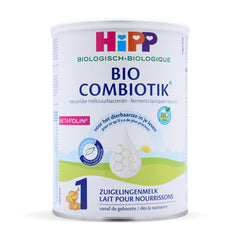How to Spot Baby Hunger Cues
58 hours of research 4 minute read

As a parent or caregiver, being able to recognize and respond to your baby's hunger cues is crucial for their well-being. While it might seem challenging at first, understanding these cues can help you ensure your baby is well-fed and content. Let's explore these hunger cues in simpler terms, making it easier for you to identify and respond to your baby's needs effectively.
Deciphering Your Baby's Hunger Signals
Babies have their own unique language to communicate when they're hungry. They may not use words, but their actions speak volumes. By paying attention to these cues, you can address their hunger before it becomes distressing for them. Here's what to look out for:
Physical Cues
Rooting Reflex: When your baby turns their head and opens their mouth when you stroke their cheek. It's their way of searching for food, whether it's from your breast or a bottle.
Hand-to-Mouth (baby eating hands): Babies love exploring their hands and fingers, but if they start bringing them to their mouth along with other cues like lip-smacking, or baby chewing on hands after feeding - it's a sign they may be hungry.
Sucking Motions: Babies often make sucking motions with their mouth, lips, or fingers when they're hungry, indicating they're ready to feed.
Behavioral Cues
Fussiness: When babies are hungry, they might become fussy and restless. They may squirm, wiggle, or show signs of discomfort, signaling their need for nourishment.
Crying: While crying is a sign for hunger, paying attention to the earlier signs can help you address your baby's needs before they become upset.
Stirring or Waking: If your baby starts to stir or wake up from sleep, it could be a signal that they're ready to eat.
Unexpected Hunger Signals
Sometimes hunger cues can be less obvious. Keep an eye out for:
Increased Alertness: Hunger can make babies more awake and alert. They might seem more interested in their surroundings and less sleepy.
Increased Activity: Hunger might also lead to increased movement. Your baby may start kicking their feet, waving their arms, or moving more vigorously.
Understanding Fullness Cues
Just as it's essential to recognize when your baby is hungry, it's equally important to know when they're full. Overfeeding can be uncomfortable for your baby and lead to digestive issues. Here are some signs that your baby has had enough:
Turning Away: If your baby turns their head away from the breast, bottle, or spoon, it could mean they're full and not interested in eating more.
Slowed Sucking: During feeding, you may notice your baby's sucking slows down or becomes less vigorous, indicating they're getting full.
Pushing Away: Your baby might push away the nipple or spoon when they're full, signaling they've had enough.
Closing Mouth: When your baby starts to close their mouth or purse their lips, it suggests they're done with the meal.
Baby Activities that Influence Hunger
As parents, understanding how different activities affect your baby's hunger patterns can help you anticipate and meet their nutritional needs effectively. While it's essential to recognize hunger cues, it's also valuable to know how certain activities may impact your baby's appetite. Let's explore some common baby activities and their potential effects on hunger.
1. Playtime
Engaging in playful activities can stimulate your baby's senses and distract them from feeling hungry. Whether it's playing with toys, singing songs, or enjoying tummy time, active play can temporarily decrease your baby's awareness of hunger. However, prolonged play without feeding breaks may lead to increased hunger once playtime is over.
2. Sleep
Babies often sleep for extended periods, especially during the early months. While sleeping, your baby's body continues to use energy, which can lead to increased hunger upon waking. Additionally, growth spurts and developmental milestones may prompt your baby to require more frequent feedings after longer periods of sleep.
3. Growth Spurts
During growth spurts, babies may experience sudden increases in appetite as their bodies require additional nutrients to support rapid growth. These periods of increased hunger may seem unexpected but are entirely normal. Paying attention to your baby's cues and offering more frequent feedings during growth spurts can help satisfy their increased hunger.
4. Physical Activity
As your baby becomes more mobile and starts crawling or walking, they may burn more calories through physical activity. Increased movement can lead to a higher energy expenditure, potentially resulting in increased hunger. Providing nutritious snacks and ensuring adequate hydration can help replenish your baby's energy stores after active play sessions.
5. Teething
The discomfort associated with teething can affect your baby's appetite. Some babies may experience decreased appetite during teething due to gum sensitivity and discomfort. Offering soft, soothing foods and providing comfort during feeding times can help alleviate discomfort and encourage adequate nutrition intake.
Understanding how various activities influence your baby's hunger can help you establish a feeding routine that meets their evolving needs. While play, sleep, growth spurts, physical activity, and teething can affect hunger levels differently, being attentive to your baby's cues and responding promptly to their hunger signals is key to promoting healthy development and well-being.
Parent Hacks to Help Your Baby Feel Full Longer
Ensuring your baby feels satisfied and full is a top priority for parents. While frequent feedings are essential for your baby's growth and development, there are some parent hacks you can employ to help your little one stay content for longer periods between meals. Let's explore some simple yet effective strategies to extend the time between feedings and keep your baby feeling full and happy.
1. Breastfeed or Bottle-feed on Demand
Responsive feeding, where you breastfeed or bottle-feed your baby on demand, allows them to regulate their intake according to their hunger cues. This approach helps ensure they consume the right amount of milk for their needs, promoting a feeling of fullness that lasts longer between feedings.
2. Offer Nutrient-rich Foods
Introducing solid foods rich in nutrients and fiber can help keep your baby feeling full for longer. Opt for wholesome options like mashed fruits, vegetables, whole grains, and protein-rich foods like pureed meats or legumes. These foods provide essential nutrients while promoting satiety, helping your baby stay satisfied until their next feeding.
3. Include Healthy Fats
Incorporating healthy fats into your baby's diet can contribute to a feeling of fullness and provide essential fatty acids for brain development. Consider adding foods rich in healthy fats, such as avocado, nut butters (if no allergies), and pureed fish or tofu, to your baby's meals to help prolong their satisfaction between feedings.
4. Ensure Proper Hydration
Proper hydration is essential for overall health and can also help your baby feel full between feedings. Offer water in a sippy cup or a small amount of breast milk or formula between meals to keep your baby hydrated and prevent thirst from being mistaken for hunger.
5. Practice Baby-Led Weaning
Baby-led weaning allows your baby to explore and self-feed solid foods at their own pace, promoting independence and helping them regulate their appetite. By allowing your baby to control their feeding experience, they can better gauge their hunger and fullness cues, leading to more extended periods of satisfaction between meals.
By employing these parent hacks, you can help your baby feel full longer and promote healthy eating habits from an early age. Remember to follow your baby's cues, offer a variety of nutrient-rich foods, and maintain a responsive feeding approach to support their overall well-being.
Exploring Organic Formulas: Keeping Your Baby Satisfied with HiPP AR
As parents, we strive to provide the best nutrition for our little ones, and choosing the right formula is a significant part of that journey. For parents looking for organic options that promote satiety and comfort for their babies, HiPP AR stands out as an excellent choice. Let's delve into what makes HiPP AR special and how it can help keep your baby feeling full and content.
What is HiPP AR?
HiPP AR is an organic anti-reflux formula designed to help manage regurgitation, spitting up, and reflux in babies. Made with high-quality organic ingredients, including hydrolyzed milk protein, HiPP AR is gentle on delicate stomachs while providing essential nutrients for healthy growth and development.
How Does HiPP AR Help Keep Babies Feeling Full?
HiPP AR is formulated with a unique thickening agent called locust bean gum, which helps reduce the frequency and severity of reflux episodes. This thickened consistency also helps babies feel fuller for longer periods between feedings, reducing the likelihood of excessive spitting up and promoting greater comfort after meals.
Benefits of HiPP AR
Organic Ingredients: HiPP AR is made with certified organic ingredients sourced from trusted farms committed to sustainable and ethical practices. This ensures that your baby receives only the highest quality, wholesome nutrition without unnecessary additives or pesticides.
Reduced Reflux: The thickened consistency of HiPP AR helps minimize reflux episodes, allowing your baby to feed more comfortably and reducing discomfort associated with regurgitation.
Promotes Satiety: By providing a thicker texture, HiPP AR helps babies feel fuller for longer periods, supporting healthy weight gain and promoting longer intervals between feedings.
Gentle on Delicate Stomachs: HiPP AR is formulated to be gentle on sensitive stomachs, making it suitable for babies with reflux or digestive issues.
Choosing the Best for Your Baby
When it comes to feeding your baby, opting for organic formulas like HiPP AR can provide peace of mind knowing that you're giving your little one the best possible start in life. With its unique thickening properties and commitment to quality ingredients, HiPP AR offers a gentle yet effective solution for managing reflux while keeping your baby feeling full and satisfied.
Trusting Your Instincts
Feeding your baby is a learning experience for both of you. By paying attention to their hunger and fullness cues, you can ensure they're getting the nutrition they need while fostering a healthy relationship with food. Trust your instincts and your bond with your baby to navigate this journey together.
Popular Formulas to Help Keep Babies Feeling Full
Organic Life Start is committed to providing accurate, reliable, and trustworthy information to parents and caregivers. We carefully choose credible sources and follow a meticulous fact-checking process to uphold the highest standards in infant nutrition and parenting advice. To learn more about our dedication to accuracy, please explore our editorial guidelines.
Link To Sources











Alysia Gerard -
When I was struggling with understanding my baby’s subtle hunger cues like rooting or hand‑to‑mouth movements, I wish I had known how important these early signals are. I used to wait until crying started, which made feeding stressful for both of us. Once I learned to notice these smaller cues, feeding became much smoother. It really helped me feel more confident as a parent.
Kurtis Leigh -
January 08, 2026
I’ve read a lot about baby-led weaning and responsive feeding methods (like waiting for self-feeding cues vs scheduled feeds) but I’m not sure if it’s worth trying early on or if it just makes reading hunger cues more confusing. Anyone have firsthand experience with these approaches and how they worked with your baby’s hunger signals?
Ronnie Sifuentes -
January 03, 2026
First-time parent here! Right now, we are timing here feeds. We give her a bottle every 3 hours or so. I noticed that she does not finish her bottles, and I can’t help thinking about the waste. What would you recommend I do? Should I rely on her hunger cues, continue my current timing method, and adjust the oz of formula I give her? I want to make sure I am meeting the required meals per day while minimizing waste.